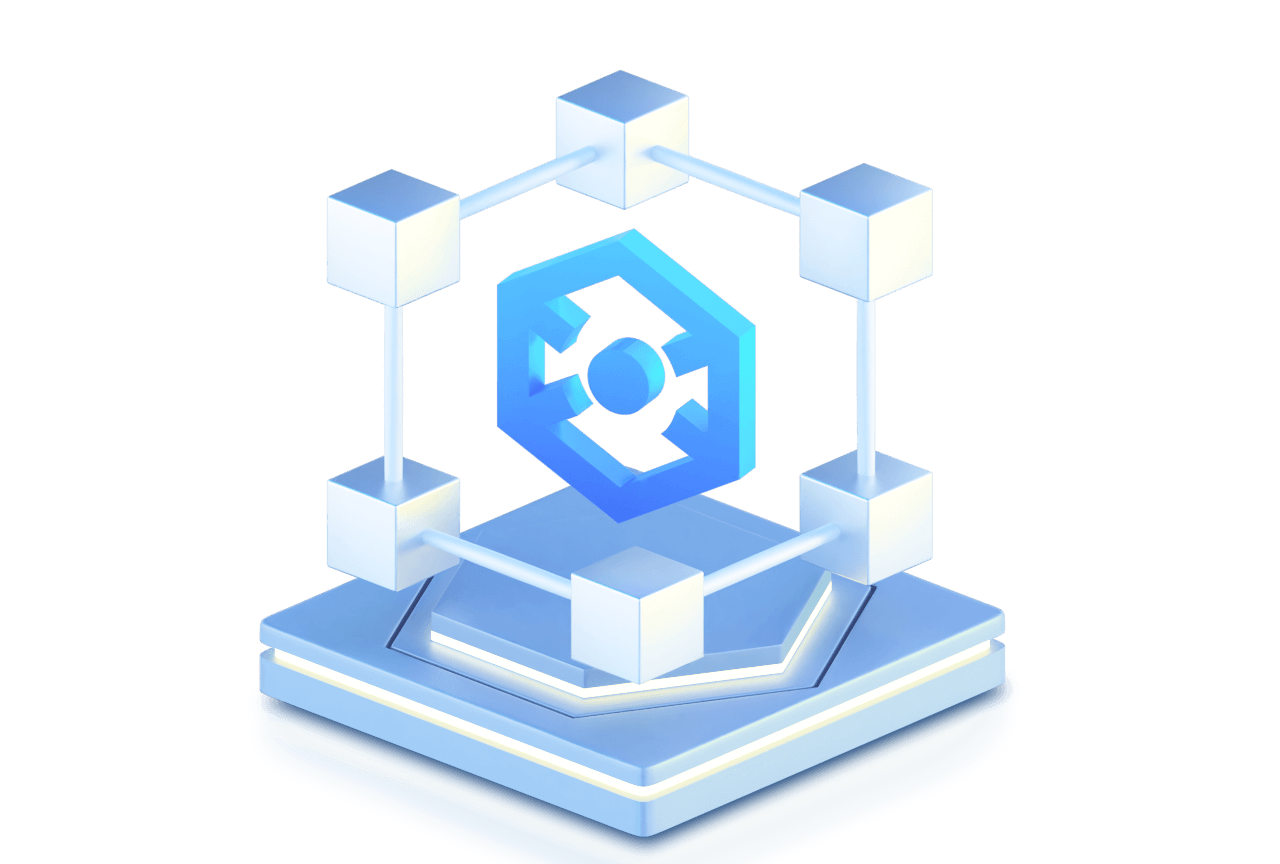TDSQL for MySQL (TDSQL) は、Tencent が開発した分散型データベース製品であり、強力な一貫性、高可用性、グローバル展開アーキテクチャ、負荷分散のための水平スケーリング、およびエンタープライズ レベルのセキュリティ等の特性を備えています。また、スマートDBA、自動化運営、監視とアラームなどの関連機能を提供することにより、ユーザーのために完備した分散データベースソリューションを提供します。現在、TDSQLは500以上の政府企業及び金融機構のためにデータベースのパブリッククラウド及びプライベートクラウドサービスを提供しています。顧客としては銀行、保険、証券、インターネット金融、課金、サードパーティ決済、LoT、インターネット+、政務等の分野をカバーしています。TDSQLは高品質の製品及びサービスにより、複数の国際的および国内的な認定を受け、顧客や業界から認められています。

テーブルの作成時にシャードキーを設定することで、データベース内の大きなテーブルを自動的に水平方向に分割できます。TDSQL システムはハッシュスキームに基づいて、自動的に書き込まれたデータを異なる物理シャードに均等に分散し、クエリも自動的に集計して結果を返します。シャーディングプロセスはサービスシステムに透明であり、完全なテーブルが表示されるだけであり、バックエンドの動作に関心を持つ必要はありません。

TDSQLは、MySQLの一般的な機能と構文( MySQLの言語構造、文字セット、タイムゾーン、データタイプ、常用関数、プリ処理プロトコル、並べ替え、結合(JOIN)、インデックス、パーティション、トランザクション、制御コマンド、頻繁に使用される DDL、DML、DCL 、及びデータベースアクセス APIを含む)と高度な互換性があります。

分散アーキテクチャの特殊性により、データベースが高度な機能と高性能をなかなか両立できません。この問題を解決するために、TDSQL は 3 つのテーブル作成ソリューションを提供します。(分散) トランザクション特性、グローバルに一意の数値シーケンス、および JSON 形式のサポートを特徴としており、分散アーキテクチャの不足を補い、開発者のためにより柔軟な開発ソリューションを提供しています。

現在、各シャードが保存できるデータは最大6TBです。パフォーマンスや容量が不足している場合は、コンソールで数回クリックするだけで自動的にグレードアップできます。アップグレードプロセス中に分散システム内のデータの移行、分散、ルートの切り替えについて心配する必要はありません。アップグレード後にIPが変りません、自動切り替え時にサービスがわずか数秒間中断され、ビジネスに再接続メカニズムがあることを確認するだけで済みます。

TDSQL はデフォルトでマスター/スレーブアーキテクチャを採用しており、99.95% 以上の可用性を保証します。システムは強力な同期レプリケーションモードをサポートし、強力なデータ整合性を提供します。ビジネスシステムによって書き込まれたデータがスレーブに同期された後にのみアプリケーショントランザクションが応答され、完全なマスター/スレーブデータの一貫性を保証し、障害によるデータの紛失や破損の可能性を排除します。現在、強力な同期レプリケーションのパフォーマンスは、基本的に非同期レプリケーションのパフォーマンスと同等です。

TDSQL は、高度にカスタマイズおよび最適化されたMySQL カーネルに基づいているため、オーペンソースのMySQLによりパフォーマンスが大幅に向上しています。3種類の読み書き分離をサポートし、読み取りの拡張容易性を提供しながら開発の柔軟性を効果的に確保します。スレッドプールスケジューリングアルゴリズムを最適化し、高負荷作業でも驚異的なパフォーマンスを発揮することができます。さらに、SATA ディスクの3 倍の IO スループットを特徴とする PCI-E SSD を搭載しているため、ビジネスのパフォーマンスニーズをより簡単に満たすことができます。

TDSQL コンソールで数回クリックするだけで、本番環境ですぐに使えるTDSQLデータベースを数分で起動して接続します。さらに、一般的なシステム監視データとパフォーマンス分析データを提供することにより、データベースの問題を迅速に特定してトラブルシューティングすることができます。

TDSQL は、ネイティブJSON型をサポートしています。JSON 値を文字列として保存しません、ドキュメント要素の迅速な読み取りを可能にする内部バイナリ形式を採用します。これにより、JSON 列で挿入または更新されたときに JSON テキストが自動的に検証されます。つまり、TDSQL は MySQL プロトコルと互換性のある NoSQL データベースと考えることができます。

RocksDBはLSMツリーに基づくストレージエンジンであり、そのデータ圧縮率はInnoDBエンジンの60%以上をリードしています。一般的にはデータ1000行あたり1GBのストレージスペースを必要とすることに相当し、データベース使用コストを大幅に節約します。また、RocksDBの書き込みスループットが著しく向上し、IoT やログなど、「書き込みが多く、読み取りが少なく」、容量に敏感な業務に特に適しています。
RocksDBは、現在ベータ版です。
MySQLとの互換性が高い
より良いパフォーマンス
高可用性
エンタープライズ グレードのセキュリティ
エンタープライズ グレードのモニタリング
拡張可能性
使いやすさ
MySQLとの互換性が高い
頻繁に使用されるMySQL 構文要素との互換性
MySQLの言語構造、文字セット、タイムゾーン、データ型、共通関数、前処理プロトコル、並べ替え、結合 (JOIN)、ストレージプロセス、インデックス、パーティション、トランザクション、制御コマンド等頻繁に使用されるDDL、DML、DCL コマンド、およびデータベース アクセス APIが含まれています。
(分散) トランザクションのサポート
TDSQL は2フェーズコミットによる分散トランザクションをサポートし、振込先、請求、支払いなどのシナリオに最適です。クロスノードトランザクションパフォーマンスは、単一ノードの約70%であり、オープンソースの分散トランザクションプロトコルである XA よりも約 56% 高いです。現在、MySQL 5.7 のみがこの機能をサポートしています。
(分散)JOIN対応
TDSQL は、複数の物理ノード間の JOIN 操作、つまり分散結合をサポートします。JOINに関連するテーブルはシャードキーと同等な条件がある場合は、シャーディングの一貫性の原則により、この部分のデータを自動的に同じ物理ノードに保存します。この場合、シングルマシンのJOINと相当し、最高のパフォーマンスを発揮できます。クロス物理ノード データに関わる場合は、プロキシは最初に他のノードからデータをプルしてキャッシュします。この場合、ネットワークで送信されるデータが多すぎるため、ネットワークパフォーマンスが低下する可能性があります。
JSON対応
TDSQL は JSON 形式のデータの保存をサポートしているため、JSON 処理がより効率的になり、エラーの早期検出が可能になります。JSON 型を使用し、データの一貫性、トランザクション、JOINなどの従来のデータベース機能に対し要求がある場合は、TDSQLは最適な選択となります。 TDSQL の JSON サポートは MySQL に基づいており、MongoDB とは使い方が少し異なります。ご興味のある方はTDSQL と MongoDB の JSON 機能比較表をご覧ください。
3種類のテーブル作成ポリシー
分割テーブル:即ち水平分割されたテーブルです。通常、2,000 万行を超えるデータ (50 GB を超える) を格納する、急速に拡大する大規模なテーブルに適用できます。
ブロードキャストテーブル:即ちすべての操作がすべての論理シャードにブロードキャストされます。各シャードには完全なテーブルデータがあることを意味します。通常、このテーブルタイプは、構成テーブルまたは頻繁に結合する必要があるテーブルに適しています。当該種類のテーブルのデータ更新が少ないです。ブロードキャスト テーブルは2 つのテーブル間の共同クエリ とトランザクションを 1 つのノードに収束し、パフォーマンスを向上させます。
単一テーブル:シャーディングする必要のないテーブルです。 通常、このテーブルタイプは、データ量が少ないデータベース テーブルに最適です。単一テーブルが分割されていないため、使用中に MySQL と完全に互換性があります。
グローバルに一意の数値シーケンス
AUTO_INCREMENTと類似しています。自動インクリメントシーケンスは、ユーザーのためにグローバルに一意の数値 ID サービスを提供し、分散環境における一意のキーやプライマリキーなどのデータのグローバルな一意性を確保します。
パススルーコマンド
SQL ステートメントは、パフォーマンスと操作の柔軟性を向上させるために、注釈方法 (ヒント) を介してSQLを指定されたターゲットシャードに渡すことができます。
セカンダリパーティション
TDSQL は、シャーディングに加えてパーティションテーブルもサポートしています。つまり、水平分割されたテーブルに論理パーティションレイヤーを追加します。
より良いパフォーマンス
読み書き分離(読み取り専用スレーブ)
TDSQL はデフォルトで読み書き分離機能をサポートしています。 マスター/スレーブアーキテクチャにおける各スレーブは、読み取り専用にすることができます。複数のスレーブが設定されている場合、大規模なアプリケーションの読み取りトラフィックをサポートするために、読み取り要求はゲートウェイクラスター(TProxy)によって負荷の低いスレーブに自動的に割り当てられます。読み取り専用アカウント、/*slave*/、読み取り専用インスタンスの 3 つの読み書き分離方式があります。
スレッドプール
TDSQL はデフォルトでスレッドプールをサポートします。Tencent は、スレッドプールのスケジューリング アルゴリズムを最適化しています。システムに大きな負荷がかかった場合、クエリと更新リクエストがスレッド グループ間で不均等に分散されるという極端な状況に対処し、コンピューティングリソースをより効率的に使用し、必要のないスレッド切り替えを減少し、キューにおけるリクエストの待ち時間を短縮し、タイムリーにリクエストを処理することが可能となっています。
ハイエンドのハードウェア構成
TDSQLはPCI-E SSDに基づき、SATAと比較して少なくとも3倍以上のIOPS構成を提供し、強力な IO パフォーマンスによりデータベースのアクセス能力を確保できます。ストレージ ハードウェアは NvMe プロトコルを採用し、PCI-E インターフェース向けに特別に設計されたSSDで、最大限のパフォーマンスを発揮することができます。単一のシャードは最大245509 QPS(1 秒あたりのアクセス回数)、384GBメモリ及び 6TB のストレージ容量をサポートします。
パフォーマンスの線形成長
分散アーキテクチャの特徴は、TDSQL シャードの増加に伴い、各シャードが分散タスクの一部を引き受けるため、データベースのパフォーマンスを直線的にスケーリングできることを意味します。
RocksDB対応
RocksDBは新たにオープンソース化されたストレージ エンジンであり、Facebook を含む多くの企業で使用されています。RocksDBはLSMツリーに基づくストレージエンジンであり、そのデータ圧縮率はInnoDBエンジンの60%以上をリードしています。つまり、圧縮前160GBのInnoDBデータはRocksDBを使用すると62GBとなります。これは、データ1000行あたり1GBのストレージスペースを必要とすることに相当し、データベース使用コストを大幅に節約します。また、RocksDB は、同時実行性の高いシナリオで InnoDB の 5 倍を超える高い書き込みパフォーマンスも備えており、IoTやログなど「書き込みが多く、読み取りが少なく」、容量に敏感な業務に特に適しています。
高可用性
分散型高可用性
分散アーキテクチャは非常に高い可用性を誇っています。つまり、1 つのノードに障害が発生しても、クラスター全体の可用性には影響しません。このアーキテクチャに基づいて、TDSQL は各シャードにマスター/スレーブを冗長構成とすることで、ビジネスの継続性と高可用性を確保します。
3種類のデータ複製方式
TDSQL は、強力な同期 (ダウングレード不可)、強力な同期 (ダウングレード可能)、および非同期レプリケーションの 3 つのモードをサポートしています。Tencent 独自のマルチスレッド非同期レプリケーションテクノロジは、強力な同期データ レプリケーションのパフォーマンスを保証します。強力な同期レプリケーションのパフォーマンスは、基本的に非同期レプリケーションのパフォーマンスと同等であるため、マスターとスレーブのデータの一貫性が保証されます。
透過的なフェイルオーバー
すべてのシャードと基盤となる物理デバイスを24時間年中無休で監視します。クラスタ内のあるノードで障害が発生した場合は、ゲートウェイクラスタ(TProxy) は障害のあるノードから通常のノードに即座に切り替えます。スレーブ機をマスター機に切り替えた後、VIP は変更されません。つまり、アプリケーション層を変更せずホットバックアップの切替を実現し、フェイルオーバーがビジネスにまったく影響を与えないようにします。
ノードの自動修復
シャードを搭載する物理ノードに障害が発生すると、スケジューリング システムはノードの回復を自動的に再試行します。元のノードを回復できない場合、30 分以内に新しいリソースを自動的に適用し、バックアップからノードを再構築し、ノードをクラスターに自動的に追加して、シャードのマスター/スレーブ切り替えの機能を保証します。
クロス AZ 配置
マスターとスレーブは、同じ都市の異なるアベイラビリティ ゾーンに展開でき、Tencent Cloud Direct Connect を介してリアルタイムのデータ レプリケーションを行うことができます。ローカルはマスター、リモートはスレーブであり、外部からデータにアクセスする場合は、まずローカル インスタンスにアクセスし、ローカルインスタンスに到達できない場合は、リモートインスタンスにアクセスします。クロス AZ 配置はTDSQLのためにクロス AZ のディザスタ リカバリ機能を提供し、マスター/スレーブの切り替えをエンド ユーザーに対して透過的であり、単一 IDC 展開の運用上のリスクを排除します。
金融グレードの2-region-3-DCソリューション
TDSQL は、1-region-2-DC または 2-region-3-DC デプロイメントアーキテクチャを提供できます。障害が発生した場合、データベースは数分で通常の状態に復元できます。
エンタープライズ グレードのセキュリティ
中国、国際、および業界規格に準拠
TDSQLはTencent Cloudデータベースを代表して多くの国家認証と国際認証を獲得しています。(ISO22301 認証、ISO27001 認証、ISO20000 認証、ISO9001 認証、信頼できるクラウドサービス認証、情報安全等級保護(三級又はそれ以上)、CSA STAR 認証を含むがこれらに限られない)。
TDSQLにおける一部の機能の設計標準は GBT 20273-2006 情報安全技術 データベース管理システム安全技術要件、JRT 0072-2012 金融業界情報システムの情報安全等級保護評価ガイドを参考にしています。ビジネスで非常に高いデータベース セキュリティ要件がある場合でも、TDSQL を安心して使用できます。
安心に利用することができます。
データベースカーネルレベルのセキュリティ
SQL インジェクション、パストラバーサル、不正な特権の昇格、システム テーブルの上書き攻撃、プラグイン導入等の潜在的な安全リスクに対し、TDSQLは大量のセキュリティ最適化を行っており、データベースクラスター内部に組み込まれているデータベースファイアウォールを提供し、メンテナンスと使用の両方でビジネス セキュリティ レベルが向上します。
VPC サポート
TDSQL を使用すると、Virtual Private Cloud (VPC) でデータベースインスタンスを実行できます。これにより、データベースインスタンスを分離し、IPsec で暗号化された VPN または Direct Connect 接続を介して既存の データセンター に接続できます。
データベース ファイアウォールと多重防御
TDSQL は、デフォルトで各データベースに多重防御を提供します。これにより、パブリックネットワークを有効にするデータベースインスタンスがDDoS攻撃を受けてしまった場合には、さまざまな攻撃トラフィックから防御し、ビジネスの継続性を確保できます。SQL インジェクションや総当たり攻撃などのデータベースに対する攻撃を効率的にブロックし、そのような攻撃によるビジネスの中断や損失を大幅に削減します。
細かい権限管理
デフォルトでスーパー管理者であるrootアカウントをブロックすることにより、潜在的なセキュリティリスクを回避します。テーブル、関数、ストレージプロセスなどのオブジェクトレベルでのアクセス制御を提供し、指定されたアカウントのみが許可されたリソースにアクセスできるようにし、リスクを許容範囲内に抑えることができます。
専用の物理クラスターのサポート
Tencent Cloudパブリッククラウド内の専用物理クラスター(デバイス)のすべてのリソースは、データベースインスタンスをデプロイできます。つまり、独立した物理デバイスを独占的に使用でき、他のテナントと共有する必要はありません。専用クラスターは、リソース独占、物理的セキュリティ、および業界の規制に対するニーズを十分に満たすことができます。専用クラスターを購入した後、Tencent Cloudコンソールでさまざまなカスタム仕様のデータベースインスタンスを柔軟に作成できます。
信頼性の高いストレージ
オンラインでのマスターデータとスレーブデータの保存を提供し、オンライン データのセキュリティを確保します。データを安全に保存するために、毎日自動的にバックアップを行っています。クラウドデータベースはバックアップ ファイルに基づいて過去 3 日間の任意の時点にロールバックできます。また、災害時のデータ復旧を容易にするために、毎日のコールド データも複数のバックアップ処理を実行します。データの損失を心配することなく、TDSQL にデータを安全に保存できます。
エンタープライズ グレードのモニタリング
包括的な日常モニタリング
日常モニタリングは60秒の粒度をサポートし、接続アクセス、データベースの負荷、クエリキャッシュ、ストレージエンジンなどの 70 を超える主要なメトリックをカバーし、データベースの実行状況を包括的に監視することができます。15 のコアデータベースパフォーマンス メトリックは、秒レベルのリアルタイム監視をサポートし、インスタンスの状態を把握し、パフォーマンスの問題をすばやく特定するのに役立ちます。リソースのアラームしきい値をカスタマイズすることにより、ユーザーが実行中のデータベースの状態を把握するのに役立ちます。問題が発生する場合は、タイムリーにメンテナンス人員にフィードバックし、データベースの問題に迅速に対応できるようにします。スローログ分析レポートと完全な SQL 実行レポートのダウンロードを提供することにより、データベースのパフォーマンスに影響を与える要因を理解することができます。
カスタムアラーム
リソースのアラームしきい値をカスタマイズすることにより、ユーザーが実行中のデータベースの状態を把握するのに役立ちます。問題が発生する場合は、タイムリーにメンテナンス人員にフィードバックし、データベースの問題に迅速に対応できるようにします。
パフォーマンス分析ログ
スローログ分析レポートと完全な SQL 実行レポートのダウンロードを提供することにより、データベースのパフォーマンスに影響を与える要因を理解することができます。
拡張可能性
柔軟なスケーラビリティ
現在、各シャードが保存できるデータは最大6TBです。パフォーマンスや容量が不足している場合は、コンソールで数回クリックするだけで自動的にグレードアップできます。アップグレードプロセス中に分散システム内のデータの移行、分散、ルートの切り替えについて心配する必要はありません。アップグレード後にIPが変りません、自動切り替え時にサービスがわずか数秒間中断され、ビジネスに再接続メカニズムがあることを確認するだけで済みます。
自動リバランス
シャードが追加またはアップグレードされると、データが自動的に移行され、ノード間でデータが均等に分散されます。移行中にサービスが中断されることはありません。数秒以内に読み取り専用になるシャードはごくわずかです。それにより、大規模なサービスメンテナンスの効率を向上させ、運用リスク事象の発生を抑制します。
使いやすさ
大容量データベースを気軽に管理
TDSQL は、コマンドラインまたはコンソールを介して管理できます。大規模なデータベース インスタンスをオンラインで数回クリックするだけで簡単に管理できるため、保守・メンテナンスなど運用管理の負荷も大幅に軽減されます。
多種類のネットワークアクセス方式
TDSQL は、VPC およびクラシックネットワークからのアクセスをサポートし、外部アクセスも構成できます。これらのアクセス方法を使用すると、Tencent Cloud、IDC、プライベートクラウド、または他のクラウドベンダーからTDSQLにアクセスでき、さまざまな環境でのデータベースアクセスのニーズを完全に満たします。
API サポート
TDSQL は完全な API システムを備えています。API を介してクラウドデータベースと内部監視、運営システムを統合することで、ビジネス ニーズに自動的に対応できる完全に自動化したビジネスメンテナンスシステムを作成できます。詳細については、API ドキュメントを参照してください。
頻繁に使用されるMySQL 構文要素との互換性
MySQLの言語構造、文字セット、タイムゾーン、データ型、共通関数、前処理プロトコル、並べ替え、結合 (JOIN)、ストレージプロセス、インデックス、パーティション、トランザクション、制御コマンド等頻繁に使用されるDDL、DML、DCL コマンド、およびデータベース アクセス APIが含まれています。
(分散) トランザクションのサポート
TDSQL は2フェーズコミットによる分散トランザクションをサポートし、振込先、請求、支払いなどのシナリオに最適です。クロスノードトランザクションパフォーマンスは、単一ノードの約70%であり、オープンソースの分散トランザクションプロトコルである XA よりも約 56% 高いです。現在、MySQL 5.7 のみがこの機能をサポートしています。
(分散)JOIN対応
TDSQL は、複数の物理ノード間の JOIN 操作、つまり分散結合をサポートします。JOINに関連するテーブルはシャードキーと同等な条件がある場合は、シャーディングの一貫性の原則により、この部分のデータを自動的に同じ物理ノードに保存します。この場合、シングルマシンのJOINと相当し、最高のパフォーマンスを発揮できます。クロス物理ノード データに関わる場合は、プロキシは最初に他のノードからデータをプルしてキャッシュします。この場合、ネットワークで送信されるデータが多すぎるため、ネットワークパフォーマンスが低下する可能性があります。
JSON対応
TDSQL は JSON 形式のデータの保存をサポートしているため、JSON 処理がより効率的になり、エラーの早期検出が可能になります。JSON 型を使用し、データの一貫性、トランザクション、JOINなどの従来のデータベース機能に対し要求がある場合は、TDSQLは最適な選択となります。 TDSQL の JSON サポートは MySQL に基づいており、MongoDB とは使い方が少し異なります。ご興味のある方はTDSQL と MongoDB の JSON 機能比較表をご覧ください。
3種類のテーブル作成ポリシー
分割テーブル:即ち水平分割されたテーブルです。通常、2,000 万行を超えるデータ (50 GB を超える) を格納する、急速に拡大する大規模なテーブルに適用できます。
ブロードキャストテーブル:即ちすべての操作がすべての論理シャードにブロードキャストされます。各シャードには完全なテーブルデータがあることを意味します。通常、このテーブルタイプは、構成テーブルまたは頻繁に結合する必要があるテーブルに適しています。当該種類のテーブルのデータ更新が少ないです。ブロードキャスト テーブルは2 つのテーブル間の共同クエリ とトランザクションを 1 つのノードに収束し、パフォーマンスを向上させます。
単一テーブル:シャーディングする必要のないテーブルです。 通常、このテーブルタイプは、データ量が少ないデータベース テーブルに最適です。単一テーブルが分割されていないため、使用中に MySQL と完全に互換性があります。
グローバルに一意の数値シーケンス
AUTO_INCREMENTと類似しています。自動インクリメントシーケンスは、ユーザーのためにグローバルに一意の数値 ID サービスを提供し、分散環境における一意のキーやプライマリキーなどのデータのグローバルな一意性を確保します。
パススルーコマンド
SQL ステートメントは、パフォーマンスと操作の柔軟性を向上させるために、注釈方法 (ヒント) を介してSQLを指定されたターゲットシャードに渡すことができます。
セカンダリパーティション
TDSQL は、シャーディングに加えてパーティションテーブルもサポートしています。つまり、水平分割されたテーブルに論理パーティションレイヤーを追加します。
読み書き分離(読み取り専用スレーブ)
TDSQL はデフォルトで読み書き分離機能をサポートしています。 マスター/スレーブアーキテクチャにおける各スレーブは、読み取り専用にすることができます。複数のスレーブが設定されている場合、大規模なアプリケーションの読み取りトラフィックをサポートするために、読み取り要求はゲートウェイクラスター(TProxy)によって負荷の低いスレーブに自動的に割り当てられます。読み取り専用アカウント、/*slave*/、読み取り専用インスタンスの 3 つの読み書き分離方式があります。
スレッドプール
TDSQL はデフォルトでスレッドプールをサポートします。Tencent は、スレッドプールのスケジューリング アルゴリズムを最適化しています。システムに大きな負荷がかかった場合、クエリと更新リクエストがスレッド グループ間で不均等に分散されるという極端な状況に対処し、コンピューティングリソースをより効率的に使用し、必要のないスレッド切り替えを減少し、キューにおけるリクエストの待ち時間を短縮し、タイムリーにリクエストを処理することが可能となっています。
ハイエンドのハードウェア構成
TDSQLはPCI-E SSDに基づき、SATAと比較して少なくとも3倍以上のIOPS構成を提供し、強力な IO パフォーマンスによりデータベースのアクセス能力を確保できます。ストレージ ハードウェアは NvMe プロトコルを採用し、PCI-E インターフェース向けに特別に設計されたSSDで、最大限のパフォーマンスを発揮することができます。単一のシャードは最大245509 QPS(1 秒あたりのアクセス回数)、384GBメモリ及び 6TB のストレージ容量をサポートします。
パフォーマンスの線形成長
分散アーキテクチャの特徴は、TDSQL シャードの増加に伴い、各シャードが分散タスクの一部を引き受けるため、データベースのパフォーマンスを直線的にスケーリングできることを意味します。
RocksDB対応
RocksDBは新たにオープンソース化されたストレージ エンジンであり、Facebook を含む多くの企業で使用されています。RocksDBはLSMツリーに基づくストレージエンジンであり、そのデータ圧縮率はInnoDBエンジンの60%以上をリードしています。つまり、圧縮前160GBのInnoDBデータはRocksDBを使用すると62GBとなります。これは、データ1000行あたり1GBのストレージスペースを必要とすることに相当し、データベース使用コストを大幅に節約します。また、RocksDB は、同時実行性の高いシナリオで InnoDB の 5 倍を超える高い書き込みパフォーマンスも備えており、IoTやログなど「書き込みが多く、読み取りが少なく」、容量に敏感な業務に特に適しています。
分散型高可用性
分散アーキテクチャは非常に高い可用性を誇っています。つまり、1 つのノードに障害が発生しても、クラスター全体の可用性には影響しません。このアーキテクチャに基づいて、TDSQL は各シャードにマスター/スレーブを冗長構成とすることで、ビジネスの継続性と高可用性を確保します。
3種類のデータ複製方式
TDSQL は、強力な同期 (ダウングレード不可)、強力な同期 (ダウングレード可能)、および非同期レプリケーションの 3 つのモードをサポートしています。Tencent 独自のマルチスレッド非同期レプリケーションテクノロジは、強力な同期データ レプリケーションのパフォーマンスを保証します。強力な同期レプリケーションのパフォーマンスは、基本的に非同期レプリケーションのパフォーマンスと同等であるため、マスターとスレーブのデータの一貫性が保証されます。
透過的なフェイルオーバー
すべてのシャードと基盤となる物理デバイスを24時間年中無休で監視します。クラスタ内のあるノードで障害が発生した場合は、ゲートウェイクラスタ(TProxy) は障害のあるノードから通常のノードに即座に切り替えます。スレーブ機をマスター機に切り替えた後、VIP は変更されません。つまり、アプリケーション層を変更せずホットバックアップの切替を実現し、フェイルオーバーがビジネスにまったく影響を与えないようにします。
ノードの自動修復
シャードを搭載する物理ノードに障害が発生すると、スケジューリング システムはノードの回復を自動的に再試行します。元のノードを回復できない場合、30 分以内に新しいリソースを自動的に適用し、バックアップからノードを再構築し、ノードをクラスターに自動的に追加して、シャードのマスター/スレーブ切り替えの機能を保証します。
クロス AZ 配置
マスターとスレーブは、同じ都市の異なるアベイラビリティ ゾーンに展開でき、Tencent Cloud Direct Connect を介してリアルタイムのデータ レプリケーションを行うことができます。ローカルはマスター、リモートはスレーブであり、外部からデータにアクセスする場合は、まずローカル インスタンスにアクセスし、ローカルインスタンスに到達できない場合は、リモートインスタンスにアクセスします。クロス AZ 配置はTDSQLのためにクロス AZ のディザスタ リカバリ機能を提供し、マスター/スレーブの切り替えをエンド ユーザーに対して透過的であり、単一 IDC 展開の運用上のリスクを排除します。
金融グレードの2-region-3-DCソリューション
TDSQL は、1-region-2-DC または 2-region-3-DC デプロイメントアーキテクチャを提供できます。障害が発生した場合、データベースは数分で通常の状態に復元できます。
中国、国際、および業界規格に準拠
TDSQLはTencent Cloudデータベースを代表して多くの国家認証と国際認証を獲得しています。(ISO22301 認証、ISO27001 認証、ISO20000 認証、ISO9001 認証、信頼できるクラウドサービス認証、情報安全等級保護(三級又はそれ以上)、CSA STAR 認証を含むがこれらに限られない)。
TDSQLにおける一部の機能の設計標準は GBT 20273-2006 情報安全技術 データベース管理システム安全技術要件、JRT 0072-2012 金融業界情報システムの情報安全等級保護評価ガイドを参考にしています。ビジネスで非常に高いデータベース セキュリティ要件がある場合でも、TDSQL を安心して使用できます。
安心に利用することができます。
データベースカーネルレベルのセキュリティ
SQL インジェクション、パストラバーサル、不正な特権の昇格、システム テーブルの上書き攻撃、プラグイン導入等の潜在的な安全リスクに対し、TDSQLは大量のセキュリティ最適化を行っており、データベースクラスター内部に組み込まれているデータベースファイアウォールを提供し、メンテナンスと使用の両方でビジネス セキュリティ レベルが向上します。
VPC サポート
TDSQL を使用すると、Virtual Private Cloud (VPC) でデータベースインスタンスを実行できます。これにより、データベースインスタンスを分離し、IPsec で暗号化された VPN または Direct Connect 接続を介して既存の データセンター に接続できます。
データベース ファイアウォールと多重防御
TDSQL は、デフォルトで各データベースに多重防御を提供します。これにより、パブリックネットワークを有効にするデータベースインスタンスがDDoS攻撃を受けてしまった場合には、さまざまな攻撃トラフィックから防御し、ビジネスの継続性を確保できます。SQL インジェクションや総当たり攻撃などのデータベースに対する攻撃を効率的にブロックし、そのような攻撃によるビジネスの中断や損失を大幅に削減します。
細かい権限管理
デフォルトでスーパー管理者であるrootアカウントをブロックすることにより、潜在的なセキュリティリスクを回避します。テーブル、関数、ストレージプロセスなどのオブジェクトレベルでのアクセス制御を提供し、指定されたアカウントのみが許可されたリソースにアクセスできるようにし、リスクを許容範囲内に抑えることができます。
専用の物理クラスターのサポート
Tencent Cloudパブリッククラウド内の専用物理クラスター(デバイス)のすべてのリソースは、データベースインスタンスをデプロイできます。つまり、独立した物理デバイスを独占的に使用でき、他のテナントと共有する必要はありません。専用クラスターは、リソース独占、物理的セキュリティ、および業界の規制に対するニーズを十分に満たすことができます。専用クラスターを購入した後、Tencent Cloudコンソールでさまざまなカスタム仕様のデータベースインスタンスを柔軟に作成できます。
信頼性の高いストレージ
オンラインでのマスターデータとスレーブデータの保存を提供し、オンライン データのセキュリティを確保します。データを安全に保存するために、毎日自動的にバックアップを行っています。クラウドデータベースはバックアップ ファイルに基づいて過去 3 日間の任意の時点にロールバックできます。また、災害時のデータ復旧を容易にするために、毎日のコールド データも複数のバックアップ処理を実行します。データの損失を心配することなく、TDSQL にデータを安全に保存できます。
包括的な日常モニタリング
日常モニタリングは60秒の粒度をサポートし、接続アクセス、データベースの負荷、クエリキャッシュ、ストレージエンジンなどの 70 を超える主要なメトリックをカバーし、データベースの実行状況を包括的に監視することができます。15 のコアデータベースパフォーマンス メトリックは、秒レベルのリアルタイム監視をサポートし、インスタンスの状態を把握し、パフォーマンスの問題をすばやく特定するのに役立ちます。リソースのアラームしきい値をカスタマイズすることにより、ユーザーが実行中のデータベースの状態を把握するのに役立ちます。問題が発生する場合は、タイムリーにメンテナンス人員にフィードバックし、データベースの問題に迅速に対応できるようにします。スローログ分析レポートと完全な SQL 実行レポートのダウンロードを提供することにより、データベースのパフォーマンスに影響を与える要因を理解することができます。
カスタムアラーム
リソースのアラームしきい値をカスタマイズすることにより、ユーザーが実行中のデータベースの状態を把握するのに役立ちます。問題が発生する場合は、タイムリーにメンテナンス人員にフィードバックし、データベースの問題に迅速に対応できるようにします。
パフォーマンス分析ログ
スローログ分析レポートと完全な SQL 実行レポートのダウンロードを提供することにより、データベースのパフォーマンスに影響を与える要因を理解することができます。
柔軟なスケーラビリティ
現在、各シャードが保存できるデータは最大6TBです。パフォーマンスや容量が不足している場合は、コンソールで数回クリックするだけで自動的にグレードアップできます。アップグレードプロセス中に分散システム内のデータの移行、分散、ルートの切り替えについて心配する必要はありません。アップグレード後にIPが変りません、自動切り替え時にサービスがわずか数秒間中断され、ビジネスに再接続メカニズムがあることを確認するだけで済みます。
自動リバランス
シャードが追加またはアップグレードされると、データが自動的に移行され、ノード間でデータが均等に分散されます。移行中にサービスが中断されることはありません。数秒以内に読み取り専用になるシャードはごくわずかです。それにより、大規模なサービスメンテナンスの効率を向上させ、運用リスク事象の発生を抑制します。
大容量データベースを気軽に管理
TDSQL は、コマンドラインまたはコンソールを介して管理できます。大規模なデータベース インスタンスをオンラインで数回クリックするだけで簡単に管理できるため、保守・メンテナンスなど運用管理の負荷も大幅に軽減されます。
多種類のネットワークアクセス方式
TDSQL は、VPC およびクラシックネットワークからのアクセスをサポートし、外部アクセスも構成できます。これらのアクセス方法を使用すると、Tencent Cloud、IDC、プライベートクラウド、または他のクラウドベンダーからTDSQLにアクセスでき、さまざまな環境でのデータベースアクセスのニーズを完全に満たします。
API サポート
TDSQL は完全な API システムを備えています。API を介してクラウドデータベースと内部監視、運営システムを統合することで、ビジネス ニーズに自動的に対応できる完全に自動化したビジネスメンテナンスシステムを作成できます。詳細については、API ドキュメントを参照してください。
TencentDB for TDSQLはサブスクリプションと従量課金の2つの課金方法がサポートされています。サブスクリプションは前払い課金方法で、ユーザーがTencentDB for TDSQLを購入するときに、ビジネスニーズに応じて、1か月以上の料金を前払いする必要があります。従量課金は後払い課金方法で、実際に使用したリソース量に応じて料金が請求され、前払いが必要ありません。取引量が瞬時に急激に変動するシナリオに適しています。課金の詳細をご参照ください。
